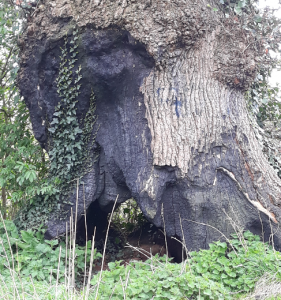In my job I do a lot of driving. I may be visiting customers or trying to gain new ones, but I will often drive to locations I’ve never been. In recent years I’ve become a fan of Google Maps. Not only does it give good directions (apart from mispronouncing Irish names & locations!) but the ability to switch to street view is real benefit. Being able to ‘see’ the geography around the customer’s location makes the last few minutes of a journey much easier. Seeing a photograph of the entrance to the building before I arrive helps me know what to look for which saves time and potential hassle.
But, no matter how beneficial a photograph may be, I would be foolish to presume I know all there is to know about the geography around the location. For starters, the photo may be several years old and the environs may have changed. Even if it hadn’t changed, there are any number of things which could make my experience different from the perceptions I made from a photograph.
Just because I ‘see’ something doesn’t mean I understand all there is to understand about it. Even if I know the destination from photos, maps or descriptions of others, I won’t actually ‘know’ it until I’ve experienced it for myself.
This principle is applicable to so much of life and it is especially true of our relationship with God. Just because someone shows us a picture, or tells us a story, about God does not mean we have a full, complete, understanding of who God is.
One of the biggest challenges for Christians today is the access we have to content about God. It is possible that we could be the most biblically educated generation in history. That may be an overstatement but the prevalence of teachings, books, devotionals, variety of translations, on-line videos and smart phone apps means we can be exposed to as much biblical material as we desire.
Yet, I still wonder, how much do we truly know of God from our own, personal experience of Him? How deep have we gone with him in the privacy of our own prayer closet? How intimately do we know Holy Spirit’s voice? How responsive are we to follow, simply because we recognise it is Him speaking?
I don’t want to be someone whose history with God is based on the stories told by someone else. I don’t want my experience of Him to be reliant on a ‘photograph’ of a destination taking by someone else. Nor do I want the extent of my experience in Him to be curtailed by the limits of others. I have never been one to settle for the status-quo and I refuse to accept mediocrity in my journey with Jesus.
I will pursue His Word and the life-giving promises He’s given. I will seek to believe, to learn and to understand all He has spoken so I can live worthy of the calling I’ve received. I will seek the presence of His Kingdom that I might know the whole measure of His fullness within me. I will pursue the growth of my faith through the declaration and demonstration of His love, power and wisdom. Where my faith is lacking or my understanding falls short I will fall on the grace and mercy of the One Whom I believe.
I extend an invitation to all who share similar desires. Let’s explore the possibilities of faith together. Let’s ask Holy Spirit to stir up a hunger and passion for more of Him. Let’s commit to encourage and support one another in this journey toward transformation. And let us know the One we believe so we can become all He desires us to be.

